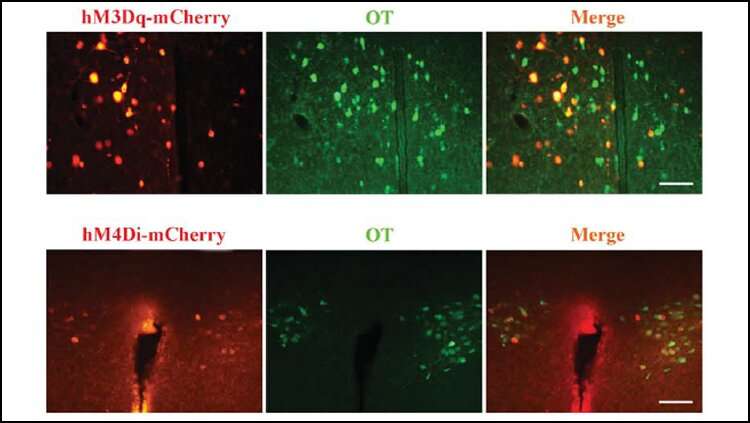
Like female voles, connections between oxytocin neurons in the hypothalamus and dopamine neurons in reward areas drive parental behaviors in male voles, according to new research published in JNeurosci.
Motherhood receives most of the attention in the research world, yet in 5% of mammals—including humans—fathers provide care, too. The “love hormone” oxytocin plays a role in paternal care, but the exact neural pathways underlying the behavior were not known.
He et al. measured the neural activity of vole fathers while they interacted with their offspring. Oxytocin neurons connecting the hypothalamus to a reward area fired when the fathers cared for their offspring. Stimulating the oxytocin neurons increased paternal behaviors, while inhibiting them reduced paternal behaviors. Inhibiting the pathway led to decreased dopamine release in the reward area when the fathers cared for their pups.
These pathways are the same ones involved in promoting maternal behavior in female animals.
Source: Read Full Article
